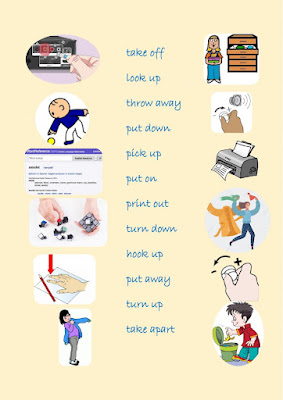Phrasal Verbs.
They are compound verbs that have a different meaning from the original verb, since they are formed with a verb and a grammatical complement, either a preposition, an adverb or both.
This type of verb can have more than one meaning and its use is more common in informal contexts.
Verb + Adverb
In this case the adverb functions as a dependent part of the verb. For example:
We need to live down the past. (Debemos olvidar el pasado)
Verb + Preposition
This form is most often used with nouns and pronouns:
The Adams live down this street. (Los Adams viven por esta calle)
Some general characteristics are...
These verbs can be transitive, that is, they are followed by an object; or intransitive, they are not followed by an object.
They can be translated into English in just one word, for example:
Sit down / Sentarse.
Go away / Irse.
Stand up / Levantarse.
Compound verbs can be transitive or intransitive, depending on whether or not they have a direct object complement in the form of a nominal syntagm. The order of the sentence will depend on this.
-We are not going to look at the differences between the different types of compound verbs. For now, what is most important to keep in mind is that phrasal and prepositional verbs are verbs and generally have different meanings from the verbs that form them.
-For example, the verb "give" means "dar", but if we add the preposition "up", the meaning will change: "Give up" means "abandonar", "dejar de" or "rendirse". Therefore, "give" and "give up" are two different verbs.
You have to put your cigarette out when you enter the non-smoking area.
My brother uses my things and never puts them back .
The music is too loud. Turn it down , please.
The plane is going to take off in twenty minutes.




No hay comentarios:
Publicar un comentario